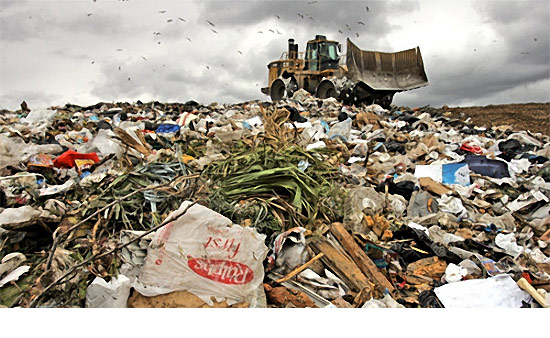Battle of the bags isn’t over
September 1, 2010
In the end, a ban wasn’t in the bag.
Hopes of outlawing throwaway plastic shopping bags throughout California went bust Tuesday night when the state Senate soundly defeated AB 1998 after passionate floor debate in the waning minutes of the legislative session.
But the fight now moves from Sacramento to the local front, where municipalities including Los Angeles County are poised to jump into the fray.
Los Angeles County Supervisors Zev Yaroslavsky and Mark Ridley-Thomas say they will push for a bag ban here. If the measure is approved by their colleagues on the Board of Supervisors, it could become a model for other local governments seeking to say no to disposable plastic bags.
“I think Los Angeles County, along with a number of other cities and counties around the state—including the city of Los Angeles, and the city of Pasadena, and the city of Santa Monica among others—will pass their own plastic bag ban,” Yaroslavsky told a KPCC radio audience Tuesday.
In taking up the fight, the county would be entering a big money, big media battleground in which both sides are fighting to influence business and consumer behavior in a big way. Opponents of the statewide ban, led by the American Chemistry Council, reportedly spent millions of dollars on lobbyists, a website called Stopthebagpolice.com, and radio and TV ads blasting the bill as a “$1 billion tax” on California consumers. The bill’s supporters spoke out in editorials and a tongue-in-cheek faux-nature video from Heal the Bay called “The Majestic Plastic Bag,” narrated by actor Jeremy Irons.
Proponents of the ban say it is long overdue. Overall, county residents consume about 6 billion bags a year, about 600 per person, according to a county report. The bags clog landfills, produce widespread litter and present an environmental hazard in the oceans as marine animals swallow or get tangled in the billowy plastic.
The state bill, sponsored by Assemblywoman Julia Brownley of Santa Monica, would have banned single use plastic bags at supermarkets, drugstores and convenience stores. Consumers would have been required to bring their own bags or to pay for paper bags at cost. Taxpayers pay an estimated $25 million each year just to put used plastic bags in landfills, Brownley pointed out in support of the bill.
In Los Angeles County, the Public Works Department already is working on a potential bag ban ordinance to be presented to supervisors in October, although key provisions have not been finalized, said Coby Skye, program manager of the Single-Use Bag Reduction and Recycling Program at the Department of Public Works.
A county ban would apply only to unincorporated areas, where 1.3 million county residents live.
Supervisors have been tangling with the bags since 2007, when they passed a motion directing DPW to produce a plan to reduce the use of the bags. In 2008, the county adopted a voluntary bag reduction and recycling program that was backed by the plastics industry. The program laid out benchmarks for compliance which have not been met, thus triggering the development of a potential ban.
San Francisco passed the state’s first ban in 2007. Bans enacted after that in cities including Oakland, Manhattan Beach and Santa Monica have been blocked in court by opponents who demanded and won costly environmental impact reviews. Los Angeles County is completing an environmental impact report that the county could use to defend a ban if one is enacted here. A draft (available here) concludes that, despite the claims of opponents, a ban would produce no significant direct negative environmental impacts.
In Malibu, the county’s only city with a working ban, having plastic bag-free checkout lanes has proven popular.
Rebecca Nelson, senior office assistant in the city’s Environmental Programs department, said grocery stores and drug stores have done a good job complying with the 2008 ordinance. Restaurants have been more of a challenge, with some establishments reverting to old ways. (AB 1998’s provisions would not have covered restaurants.)
“A few sneaky managers have gone to plastic and we have caught them in our annual inspection,” Nelson said.
Bringing a reusable bag to the market is not a big stretch for residents of the celebrity-studded community where environmental friendliness is as much a part of the local lifestyle as going out for sushi at Nobu. But visitors may bring a different set of expectations for how their groceries or takeout orders should be packaged.
“Sometimes we get tourists in here and they’re shocked—or they don’t understand,” said Emily Simon, manager of Malibu Kitchen, located in the Malibu Country Mart.
But for those who live in Malibu, Simon said, the bottom line is: “No one wants to see plastic floating around on the beach here.”
Posted 9/1/10













 405 bridge work causes a stink
405 bridge work causes a stink
